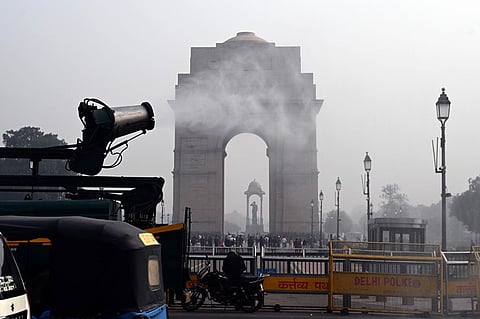

NEW DELHI: A proposal to combat dust pollution in the capital, approved by the cabinet last month, is set to cost a total of Rs 2,388 crore over the next ten years. The Public Works Department (PWD) will spearhead the project, which includes large-scale deployment of mechanical road sweeping and water sprinkling systems aimed at improving Delhi’s ambient air quality.
The initiative falls under the broader ‘Pollution Control and Emergency Measures’ scheme approved last month by the Delhi Cabinet in a meeting chaired by Chief Minister Rekha Gupta. Of the total budget, Rs 1,158 crore has been earmarked for the hiring of 250 water sprinkler vehicles equipped with anti-smog guns.
These will operate in three daily shifts, using treated water supplied free of cost, 15,000 kiloliters per day by the Delhi Jal Board.
In addition, the government will spend Rs 1,230 crore over the next seven years in hiring 70 mechanical road sweeping machines. These units, which come equipped with 210 water sprinklers, tankers and anti-smog guns, will focus on cleaning road carriageways, not footpaths or green verges.
Officials cited a 2016 study by IIT Kanpur, which found that mechanical sweeping alone can reduce PM10 levels by 55%, and up to 90% if supported by vacuum-assisted sweeping.
The PWD currently maintains around 1,400 kilometres of main roads in Delhi. These high-traffic roads will be prioritised under the project, with plans to expand the coverage.
The plan has seen delays, partly due to a jurisdictional tussle between the PWD and the Municipal Corporation of Delhi (MCD). The MCD had objected to an earlier proposal by the Environment Department, asserting sanitation fell within its mandatory duties.
However, after the project was transferred to the MCD with no action taken, the chief minister and environment minister decided to revert the execution to the PWD to avoid further delays.
70 mechanical road sweeping machines
The government will spend Rs 1,230 crore over seven years in hiring 70 mechanical road sweeping machines. These units, will focus on cleaning road carriageways, not footpaths or green verges.